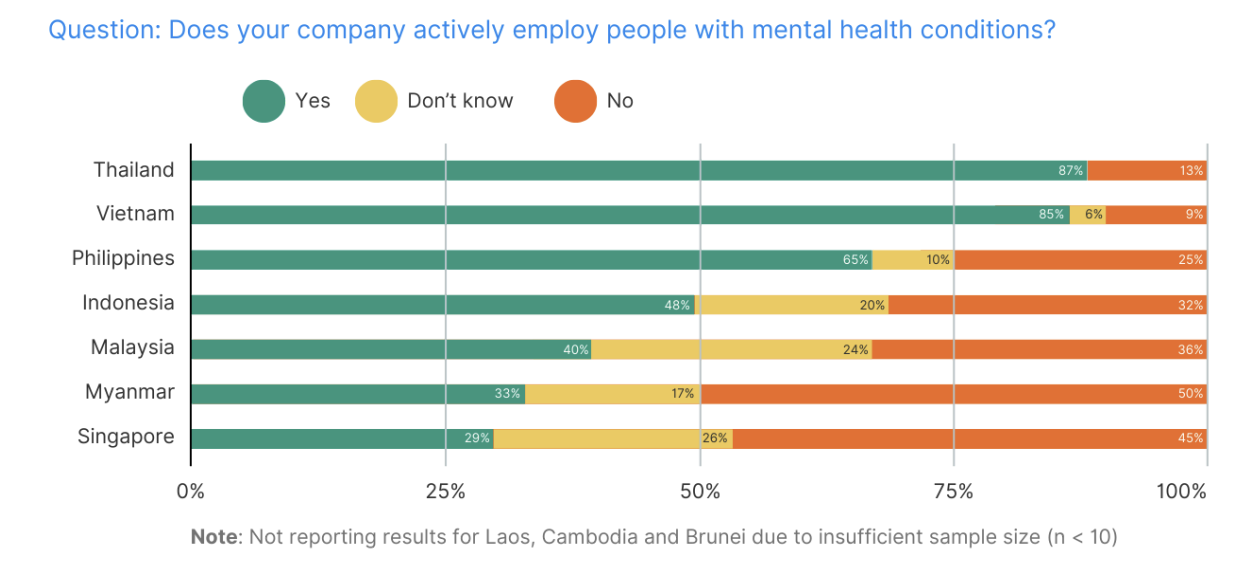
New report finds 'significant gap' in Singapore with awareness, willingness to hire people with mental health conditions

There is a "significant gap" in Singapore regarding awareness and willingness to accommodate employees with mental health conditions, according to a new report from Intellect.
The report found that while Singapore has the highest rate of inclusive hiring policies (89%) and workplace/physical environment [adjustments] (78%), 45% of HR leaders said their organisations are not actively hiring individuals facing mental health challenges.
In fact, only 29% of HR leaders in Singapore said their organisations are actively employing people with mental health conditions, the lowest in the Association of Southeast Asian Nations (ASEAN).
In contrast, Thailand and Vietnam reported the highest rate of organisations employing people with mental health conditions, and these are also the least likely markets where employers are hesitant to hire these individuals, according to the report.

Source: Intellect
Intellect's report said the disconnect in Singapore underscores a "critical gap" between policy implementation and practical outcomes in fostering inclusive workplaces.
It comes despite guidance from the Tripartite Guidelines on Fair Employment Practices that discourages employers from asking job applicants to disclose personal information, including mental health conditions.
"While Singapore rightfully restricts employers from asking specific questions around the mental health of candidates, our findings indicate there remains a significant gap in both awareness and willingness to accommodate employees with mental health challenges," said Theodoric Chew, co-founder and CEO of Intellect, in a statement.
But 67% of employers in Singapore said this non-disclosure practice is the reason why [they are] not actively hiring those struggling with mental health conditions, according to the report.
Other HR leaders are saying it's because of:
Chew stressed that workplaces play a "very important role" in dismantling the stigma surrounding mental health.
"It's imperative that hirers and leaders understand the need to integrate mental health support across the business," he said.
The CEO added that the development of guidelines calling for stronger return-to-office support for employees with mental conditions is a "step in the right direction" in Singapore.
"Ultimately, by providing proper training, flexible work policies, and easily accessible mental health resources, employers can shift this conversation away from being something that is taboo, thus improving both hiring practices and workplace wellbeing," he said.